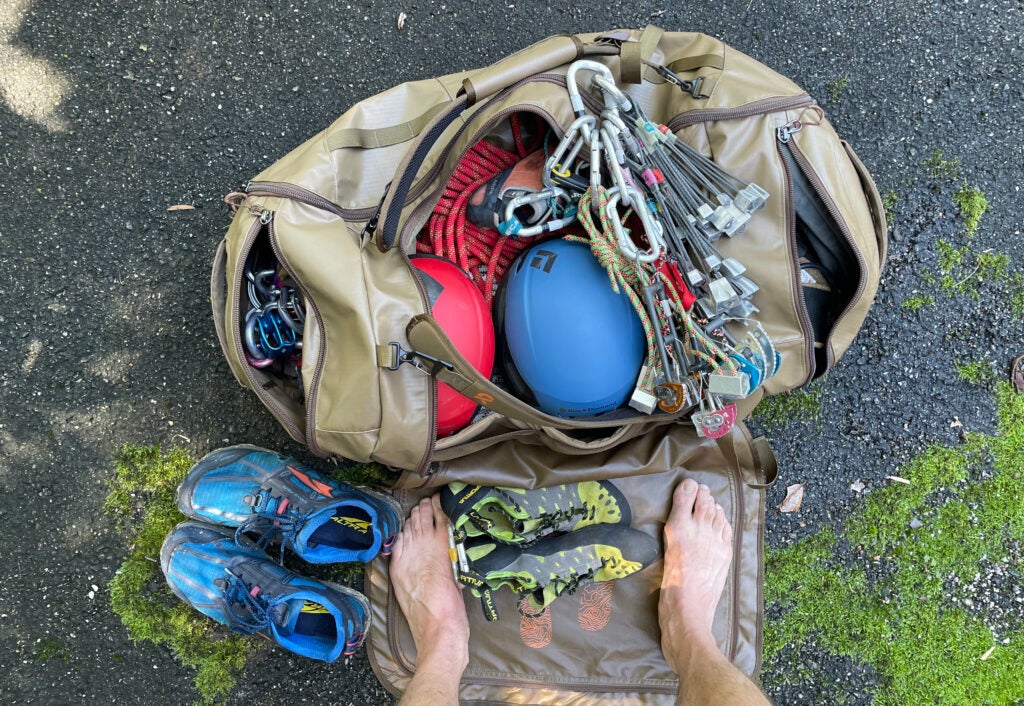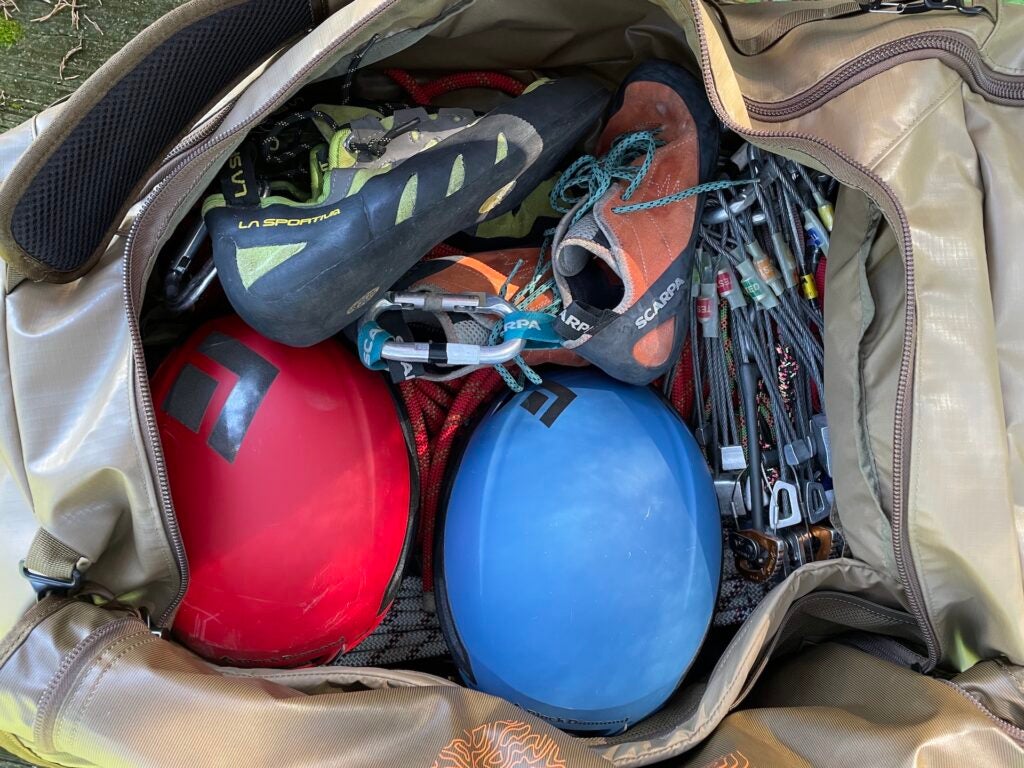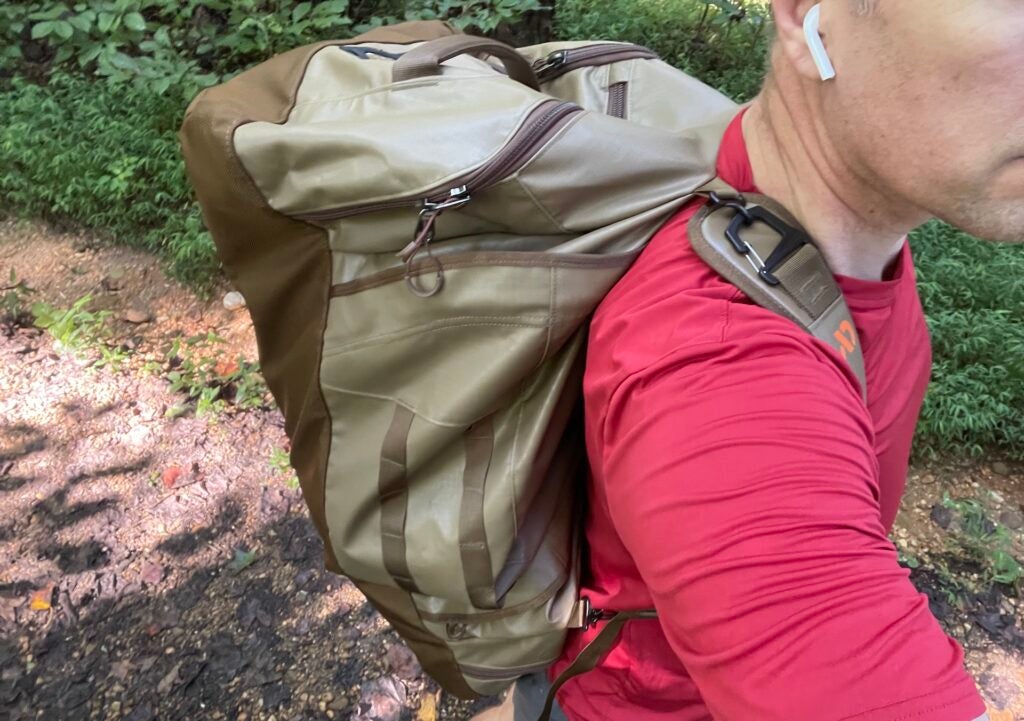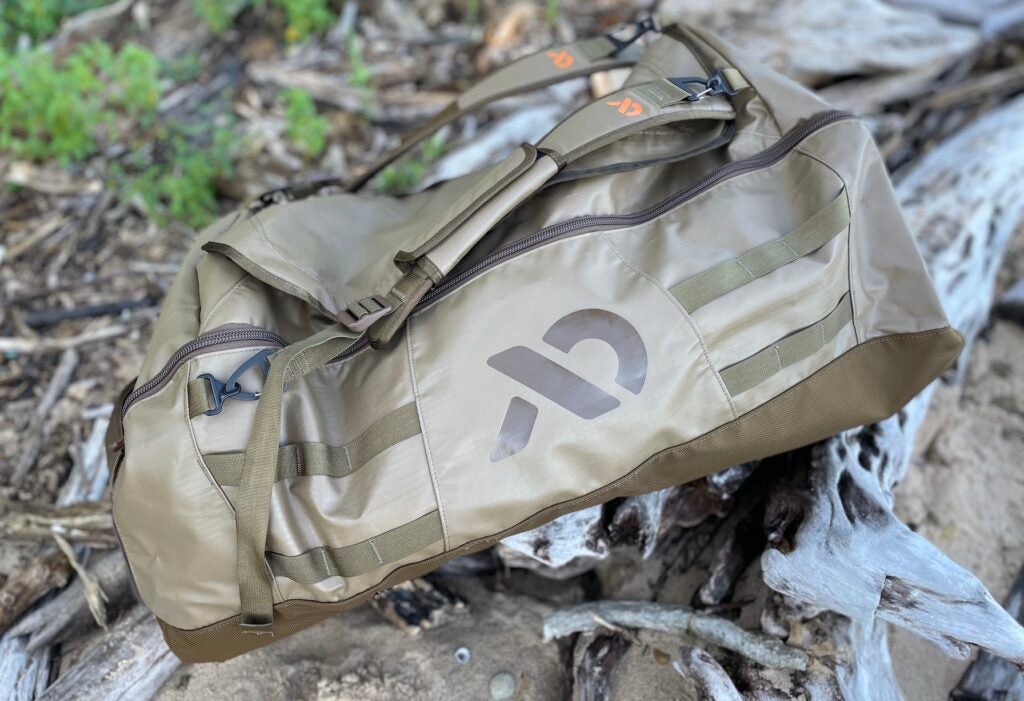I have a confession to make: I am a dirtbag.
The formal definition of dirtbag is “a dirty, unkempt, or contemptible person,” and while I am not a contemptible person, I am frequently dirty or unkempt when traveling through the backcountry. In my world and within my culture of outdoor creatures, dirtbag is a term of endearment. Calling someone a dirtbag in this context almost always evokes a smile and a few nods and the implicit communication that we are part of a subculture that eschews the conveniences and comforts of civilization to put in the work to witness the magnificence of nature in far off places that most humans are unwilling or unable to reach. We are what the founder of the Appalachian Trail, Benton MacKaye, called barbarian utopianists. The more committed of us, our druids, have adopted a lifestyle many would find extreme. Like our Dali Lama, the quintessential dirtbag Fred Beckey, they have abandoned all traditional employment and norms of society to pursue an extreme lifestyle. We can be found living for extended periods of time in vans near climbing spots, hiking the Appalachian Trail from Georgia to Maine just to turn around and head back to Georgia, and working as mountain guides in the summer and ski patrol in the winter. By habitually living below our means, we are free.
While I waxed poetic on the virtues of dirtbagism, my editor wanted me to evaluate a new duffle bag, so he arranged for me to be sent one of First Lite’s newest offerings — the eponymous 100-liter Dirtbag Duffle. At a $190 price point, we were curious to see if this premium large gear duffle bag designed by hunters for hunters would live up to the hype. Here’s how it stood up to testing by a tried-and-true dirtbag like myself.
Unboxing
The First Lite Dirtbag 100L duffle arrived by UPS in a corrugated cardboard box wrapped in an unnecessary plastic bag. I point this out because I’m all about minimizing single-use plastics due to their horrid impact on the environment. If you’re sick of me harping on this, check out this National Geographic article on the Great Pacific Garbage Patches, which is essentially 1.6 million square kilometers of (mostly plastic) trash floating in a vortex in the ocean, which is entirely human-caused and pretty fucked up. Other than that, the Dirtbag Duffle didn’t arrive with any other extraneous packaging, which I commend.
How we tested the First Lite Dirtbag Duffle

I have an eight-point criteria for evaluating backpacks and duffle bags:
- Capacity
- Weight
- Comfort
- Design
- Durability
- Water resistance
- Ease of use
- Value
First Lite is a hunting equipment company that makes gear for hunters designed by hunters. Their online catalog offers all the clothing one might need to hunt Western big game and whitetail deer. The funny thing is that I haven’t hunted in 35 years and it’s been a long while since I’ve worn hunting clothes. When I was a kid, my dad and I used to go rabbit and pheasant hunting along the edges of cornfields of Ohio, but I got tired of picking No. 8 lead shot out of my food especially when the meat section of the grocery store was just down the street. So, I wondered, what applications could I possibly use this 100L hunting duffle bag for? And then it hit me: the bag is called the Dirtbag, and rock climbers (like me) are often referred to as dirtbags, so how would this bag support dirtbags like me?
Believing this to be an entirely fair line of questioning, I grabbed the Dirtbag and headed to the basement to see if it could accommodate my load for heading to the crags, which consists of: one PMI 11mm x 46m non-dry static rope, one Edelweiss Flashlight II 10mm x 60m dynamic rope, a full rack of traditional climbing protection (cams, nuts, tricams, and hexentrics), runners, slings, carabiners, cordelettes, two climbing harnesses, two belay devices, two pairs of rock climbing shoes, two helmets, water bottles, a Petzl Spatha climbing knife and lunch. All told, this load is about 40 pounds. I wasn’t heading to the crags during this evaluation period, so I packed up the Dirtbag loaded with my climbing equipment and hiked three hilly miles through my local state park with it, the maximum distance it normally takes me to go from car to crag. Here’s how it stood up.
Capacity: The First Lite Dirtbag holds 100 liters of stuff, which is equivalent to 100 one-liter Nalgene water bottles. I didn’t buy 100 Nalgene bottles to verify the manufacturer’s claims, but the interior capacity of the Dirtbag roughly matched the capacity of my Patagonia Black Hole 100L bag, so I accepted this as fact.

The Dirtbag’s dimensions are 36 inches in length by 22 inches wide by 12 inches tall. The main central compartment of the Dirtbag, which contains six internal organization pockets, is flanked by two large end gear dump pockets. It easily accommodated the largest pieces of my gear — my ropes, helmets, climbing rack, and shoes. The side pockets easily handled my climbing harnesses and carabiners and other hardware. And the long exterior knee-high boot zip pocket stowed my cordelettes, one-inch webbing, and other cordage.
Weight: As well built and rugged as the First Lite Dirtbag is, it’s fairly light. It weighs in at 81.5 ounces or just over five pounds. Compared to similarly-sized reinforced duffle bags, it’s about average in terms of cube of space per pound of weight.
Comfort: Fully loaded, the First Lite Dirtbag felt pretty good on the shoulders and back. After I started walking a bit, I did notice the load in the center compartment sink to the bottom of the pack and the shoulder straps, which lack a chest strap, started cutting in a bit despite the padding. The Dirtbag lacks a hip belt to distribute the load like a backpack would, but remember duffle bags aren’t designed to be backpacks. They’re designed to be able to hold a bunch of shit and be carried short distances. For its intended purpose, the Dirtbag felt pretty good to this dirtbag. If I were going farther than a few miles with a heavier load, I’d use a proper backpack.

Design: There’s a lot to like about the Dirtbag’s design. The center compartment is generous and swallows up gear. The top lid unzips to the bottom and opens up to be a landing pad for changing footwear. It even has two footprints emblazoned upon the interior side of the lid to signal its utility. I found this lid design convenient for changing footwear and also flaking rope so that it wasn’t sitting in a pile in the dirt. The six internal organization pockets are pretty handy for smaller items and made of mesh so the contents can be easily seen. I used them for stowing my belay devices. First Lite placed them to be easily accessible while standing on the changing pad. The Dirtbag also features removable backpack-style straps that are fully adjustable and dual side grab handles. I appreciated the metal hardware that attaches the straps to the bag – a sign of quality. Additionally, the designers included a velcro closed TPU handle that allows both shoulder straps to be joined in the middle to serve as a singular carry handle. Nice touch. The zippered end pockets are designed with a billowed interior wall to expand and accommodate different-sized loads. I found myself being somewhat irritated by the contents of the end pockets billowing into the main chamber and prefer exterior end pockets that have a more defined bulkhead. This is a personal preference. I find it harder to see and reach gear in the end pockets when the contents of the main compartment are invading the same space through the bulkhead. What’s missing from the interior main compartment are compressions straps to hold gear in place when on the move. This would be handy in keeping the load from sinking to the bottom of the pack when hiking with it in backpack configuration. The bag has Molle webbing on the sides for lash points. Lastly, the bag comes in a ‘dry earth’ color scheme, what military folks would call coyote brown.
Durability: The First Lite Dirtbag is built to be rugged with ballistic grade nylon on the bottom for durability and a double-sided TPU coated ripstop body. You can tell just by picking it up that it’s well crafted. The zippers are YKK and have nice pulls which make operation with gloves on a snap. It’s well built and I didn’t notice any unusual wear or breakage while using the bag. I haven’t owned it long enough to have an educated opinion on its long-term durability, but see no early indicators that it wouldn’t last for years under normal use and maintenance.

Water resistance: The TPU finish on the exterior of the bag is water repellant, but the zippers are not stormproof and will let water through. I had dry weather when testing this product, so I sprayed the Dirtbag down with my garden hose to simulate a steady drizzle and check its performance. The main compartment lid has a bit of an overlap of fabric and it withstood water intrusion better than the end and side pockets — all of which had let water pass through the zipper. If you have gear that can’t or shouldn’t get wet, make sure to waterproof it before stowing it in the Dirtbag.
Ease of use: The First Lite Dirtbag is pretty Marine proof. It’s easy to use: you unzip it, put stuff in, zip it up, put it on your back, and hump it a few hundred yards or a few miles to your destination.
Value: The First Lite Dirtbag large duffle is one of the more expensive options for 100L duffle bags, but it is very well built and designed. I’ve used and loved my Patagonia Black Hole Duffle Bag 100L for years – which costs about $180. At $10 more, the First Lite Dirtbag offers more features – like the end pockets and landing pad. It’s a premium bag with a premium price, but I feel it offers a lot of performance for the price.
What we like about the First Lite Dirtbag Duffle
First off, it’s very well made, from the heavy denier ballistic nylon to the TPU coated ripstop to the heavy YKK zippers and metal shoulder strap attach points. First Lite did not skimp on materials or construction, and that’s evident in the feel of the bag. I also generally liked the design with a large main chamber and two flanking end pockets. The long side pocket was pretty handy as well, and I thought the main compartment lid unzipping fully into a landing pad to stand on while changing footwear was exceptional and unexpected. The shoulder straps were ergonomically designed and padded enough for the short distances one would haul this bag. I also liked that the shoulder straps could be completely removed and easily stowed in the long exterior zippered pocket. The removable shoulder straps can be joined in the middle to serve as a haul handle. The long side exterior pocket is designed to keep muddy field boots separate from the contents of the main compartment, and I immediately understood the value of this aspect of the design. The pocket will accommodate knee high field boots. The capacity was cavernous and easily accommodated all of my climbing gear. I also appreciated that it didn’t weigh a ton as well built as it is. (I’m far less concerned about overall weight with duffle bags as I am with proper backpacks.) Additionally, I really appreciated the six interior organizational pockets – made of mesh to make it easy to locate the contents.

What we don’t like about the First Lite Dirtbag Duffle
My main gripe about the Dirtbag Duffle is the lack of compression straps on the interior of the main compartment to keep gear in place when the bag is carried upright in backpack mode. Without compression straps, all of the gear in the main compartment sags to the bottom of the pack when the bag is tilted upright and this makes for a bottom-heavy, uncomfortable haul. I also didn’t like the thin nylon billowing bulkhead between the main interior compartment and the flanking side dump pockets as the gear in the main compartment intruded into the side pockets which made smaller items harder to find in the folds of the fabric. I prefer a more substantial bulkhead that truly separates the spaces – with the understanding that this limits the expansion capacity of the main compartment. The current design has merits, it’s just not my preference. Also, I wish that the bag had better water resistance. The lack of waterproof zippers appeared to be the main culprit in water infiltration to the interior of the bag. Lastly, the bag only comes in Dry Earth (Coyote Brown) and I wish it had other color options.
Verdict
The First Lite Dirtbag Duffle is a well-built premium haul bag that delivers a tremendous amount of value for the price. While I haven’t hunted in decades, I was able to immediately adapt it to my needs (rock climbing crag bag), which is a testament to its versatility. The design of the bag makes a lot of sense for its intended purpose. While you’ll pay a pretty penny for the Dirtbag Duffle, my sense is that you’ll also get a lifetime of use out of it.
[embedded content]
FAQs about the First Lite Dirtbag Duffle
More questions? Here’s Task & Purpose’s additional brief.
Q. How much does the First Lite Dirtbag Duffle cost?
Q. What are the primary uses for the First Lite Dirtbag Duffle
A. This bag was designed to protect and transport hunting equipment and clothing.
Q. Does First Lite offer a warranty?
A. Yes, they guarantee every product they make and will repair, refund, or replace defective items.
We’re here to be expert operators in everything How-To related. Use us, compliment us, tell us we’ve gone full FUBAR. Comment below and let’s talk! You can also shout at us on Twitter or Instagram.
Our gear section
Joe Plenzler is a Marine Corps veteran who served from 1995 to 2015. He is a backcountry expert, long-distance backpacker, rock climber, kayaker, cyclist, wannabe mountaineer, and the world’s OK-est guitar player. He is currently section-hiking the Appalachian Trail with his partner, Kate Germano. He supports his outdoor addiction by working as a human communication consultant, teaching at the College of Southern Maryland, and helping start-up companies with their public relations and marketing efforts.
Task & Purpose and its partners may earn a commission if you purchase a product through one of our links. We independently evaluate gear by putting products in the hands of subject matter experts. The products we test may be purchased by Task & Purpose, our staff, or provided for review by a manufacturer. No matter the source, our testing procedures and our assessments remain free from third-party influence. Learn more about our product review process.
